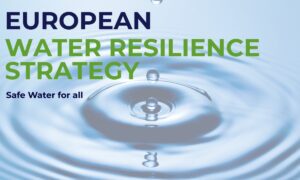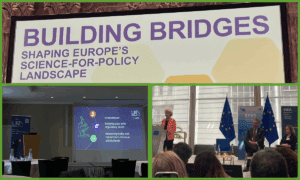The structured dialogues gave the opportunity for the representatives of the Belgian Presidency, which began on 1 January 2024, to explain their priorities to the relevant parliamentary committees, while allowed members of said committees to further enquire into and comment on these priorities.
At the 22 January ITRE Meeting, Willy Borsus, Belgian minister of innovation was present, alongside state secretary Thomas Dermin, who detailed space policy. Borsus first presented the presidency’s research and innovation (R&I) priorities, highlighting R&I’s role in serving the EU’s strategic anatomy and combating societal challenges, through valorisation of research, referring to R&I as a “catalyst”. Dermin disclosed how the presidency aims to set up a space council, and a common legal EU space framework. He also emphasized how space can be used as a tool to promote science education amongst young people.
During the lively Q&A session, MEP Christian Ehler highlighted the topic of the recent 2.1 billion EUR Horizon cut, expressing his disapproval. In addition to the cuts, he questioned the rationale behind initiating new programmes while cutting current ones, and highlighted the lack of science ministers at budget discussions deciding on matters such as horizon’s funding. In response, Borusus pointed out that, despite sharing Ehlers concerns, in a difficult situations, the EU should devote attention to necessary budgets. MEP Pernille Weiss highlighted the the gap between science and society, and called for the establishment of key performance indicators (KPIs) to justify keeping research funding as well as simplification measures. In addition, MEPs asked about life sciences and silent gene therapy, as well as global space regulations.
A week later, on 29 January, ENVI held a dialogue with Belgian Deputy Prime Minister Frank Vandenbroucke who addressed healthcare topics, and Minister David Clarinval, who presented primarily on agriculture. Vandenbroucke also addressed R&I as a tool to address medical needs, but also highlighted the issue of medicine shortages – and crisis preparedness in general. He pointed out that battling antimicrobial resistance (AMR) is high on the agenda of the Presidency – in response to which, later during the Q&A session, MEP Anja Hazekamp highlighted the links between AMR and animal welfare. EuChemS is also involved with policy regarding AMR: it organised a successful science-policy event on the matter in 2016. Another topic of Vandenbroucke was the finalisation of the European Health Data Space (EHDS), with regards to which, MEP Sara Cerdas expressed privacy concerns. In response Vandenbroucke said that trust is needed to realise such data pools, but ultimately, data should empower – and confirmed that the EHDS will be compliant with GDPR.
Clarnival’s presentation concerned animal welfare, forest monitoring, new genomic techniques (NGTs) and last, but not least, agriculture. The discussion encompassed all of these topics, however, the primary subjects were the regulations on new genomic techniques (NGTs), which appeared to be a divisive, and agricultural policies – including the controversial “Sustainable Use Regulation”. This, however, was overshadowed by the major farmer protest in Brussels a few days later which led to the complete withdrawal of the proposal.



